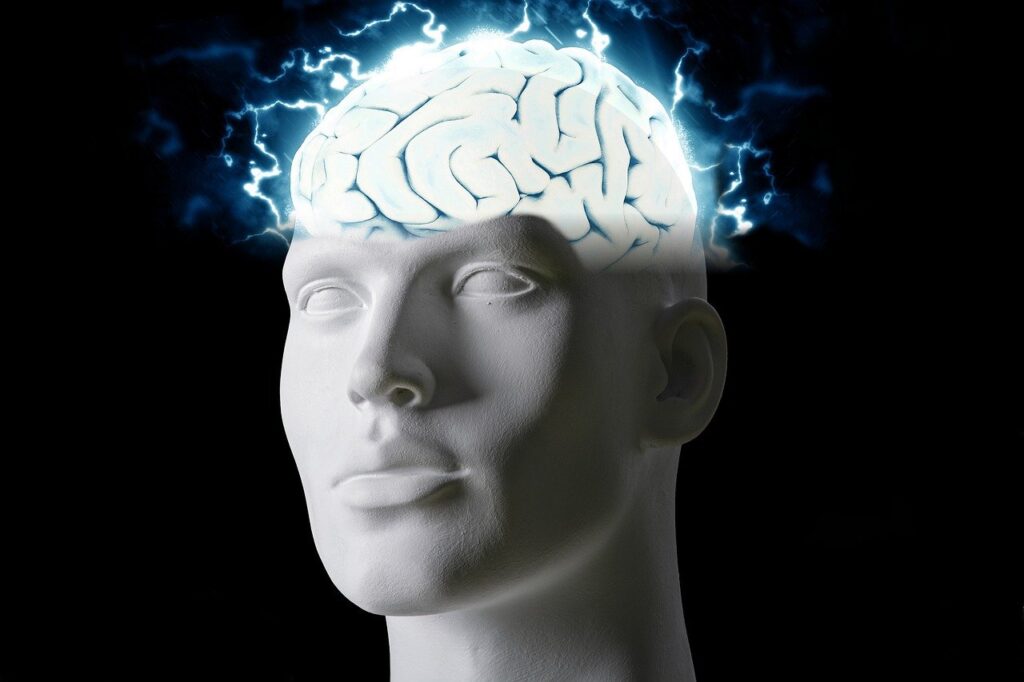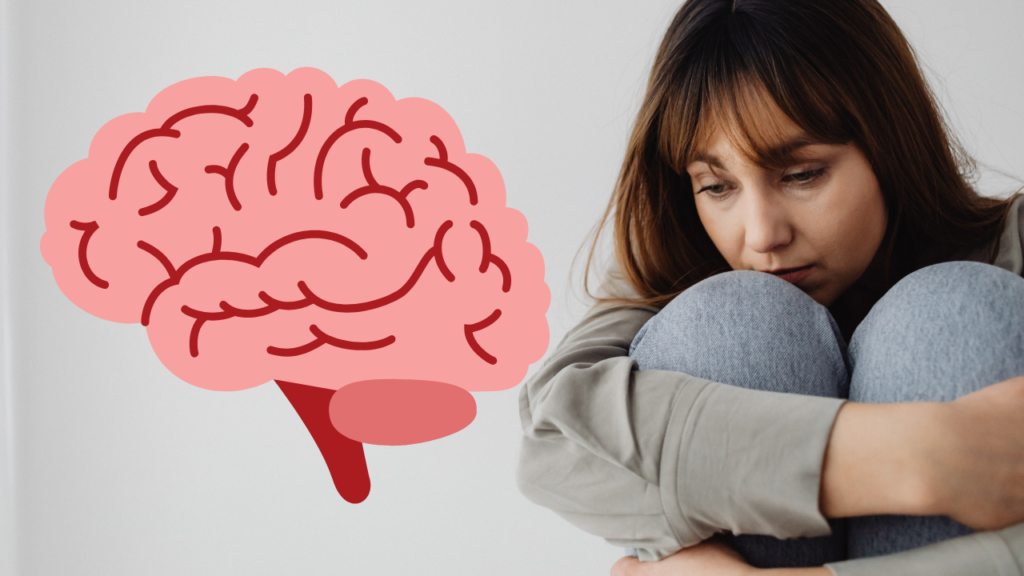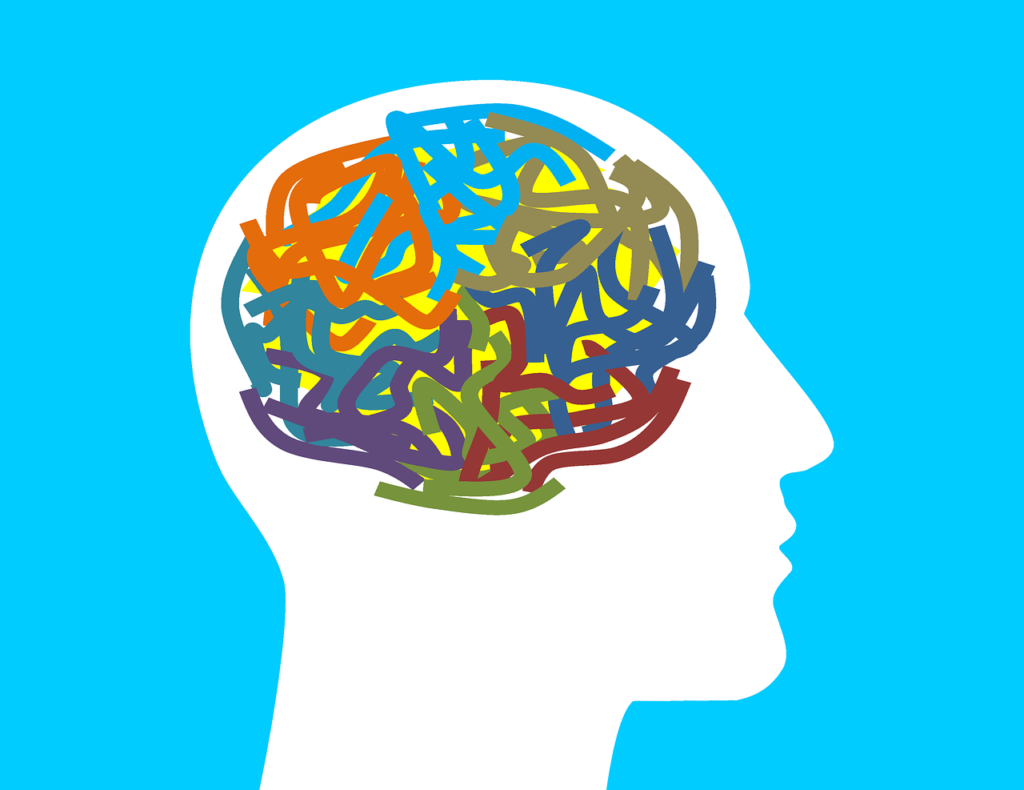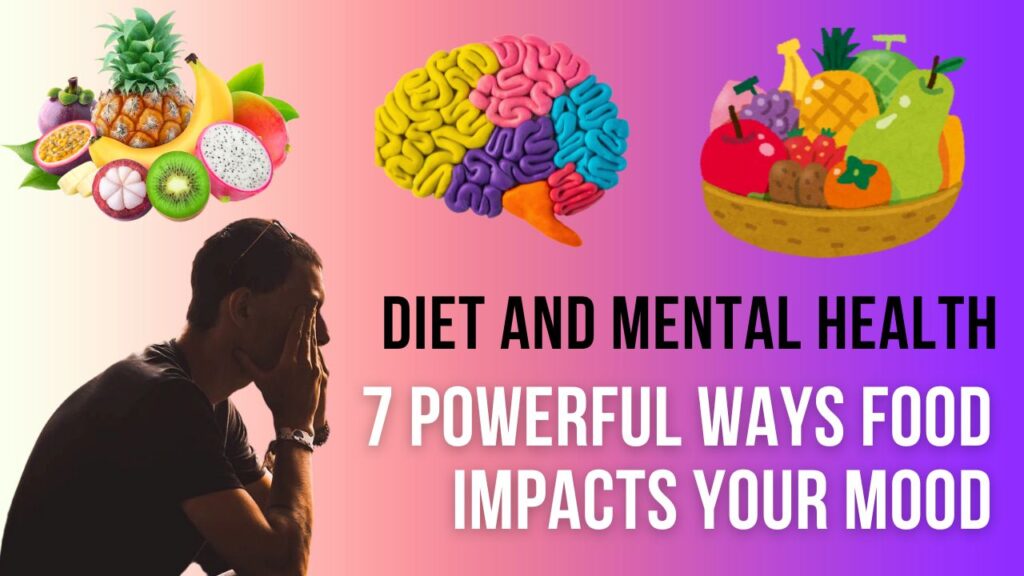Diet and Mental Health: 7 Powerful Ways Food Impacts Your Mood
An Overview
1. Sharing Meals with Others: Building Emotional Connections
2. Eating Disorders: The Complex Relationship Between Food and Mental Well-being
3. How the Foods You Eat Affect Your Mental Health
4. Nutritional Psychiatry: Bridging Diet and Mental Health
3.What Is the Best Diet for Mental Disorders?
4. How Does Fast Food Affect Mental Health?
5. Food Is Your Body’s Fuel: Energizing Your Mind
6. The Biology of the Food-Mood Connection
7. Conclusion: Prioritizing Diet and Mental Health
Diet and mental health are intricately linked, affecting emotional balance, cognitive function, and overall psychological well-being. The nourishments you expend are not, as it were, feeding your body but moreover significantly impacting your brain. A solid diet can boost disposition, diminish push, and help avoid mental well-being conditions like depression and uneasiness. On the flip side, destitute dietary choices may compound these issues, highlighting the evident connection between eating less and mental well-being.
Sharing Meals with Others: A Recipe for Emotional Well-Being
More than mere meeting an innate need, eating is a deeply interaction that strengthens ties and fosters intense connection. Dining with loved ones or friends creates a feeling of belonging, lessens feelings of feelings of isolation and does, in fact, help to lessen the negative consequences of hardship. In the fast-paced world of today, where confinement is becoming more prevalent, keeping shared meals an absolute necessity can have an enormous beneficial effect on mental health. Whether it’s a family supper, an excursion with companions, or a lunch break with colleagues, eating together gives minutes of meaningful association.

Eating Disorders: Understanding a Complex Connection
The complex association between eat less and mental wellbeing is exemplified by eating disarranges such binge-eating clutter, bulimia, particularly anorexia nervosa. These conditions as often as possible emerge by mental components such as injury, social weights, or a need of self-worth.Additionally to having a negative impact on physical health, eating problems can result with substantial mental suffering, anxiety, and frustration. To address these concerns, a complete approach that includes counseling, rehabilitative treatment, and nutritional advice is needed. Recognizing the early warning signs and obtaining professional help will greatly improve your mental as well as physical experiences.
How the Foods You Eat Affect Your Mental Health
Every meal you eat has a immediate impact on your energy levels, mood, and ability to think. Important nutrients that impact inflammatory processes, transmitter synthesis, and general brain health make up the link connecting diet and mental health.
Nutrients that Boost MoodB vitamins, magnesium, omega-3 fatty acids, and cancer prevention substances are essential for maintaining optimal mental health. These vitamins improve neurotransmitters function, reduce inflammatory processes, and support brain restoration.
The Mediterranean Diet: This diet is linked to lower incidence of depression because it is high in fruits, vegetables, whole grains, nuts, seeds, and healthy fats like olive oil.
Processed Foods and Sugars: Mood swings, exhaustion, and elevated anxiety are associated with diets heavy in processed foods and added sugars.
You may maintain cognitive vibrancy and encourage improved mental health by giving nutrient-dense foods like leafy greens, berries, fatty salmon, and whole grains priority.
Nutritional Psychiatry: Bridging Diet and Mental Health
The study of how nutrition affects mental health is the focus of the developing area of nutritional psychiatry. It investigates how food choices can aid in the management or avoidance of mental illnesses which includes anxiety and depression.

- Gut-Brain Axis: A fundamental aspect of healthy psychiatry is the connection between intestinal health and brain function. Foods high in probiotics, such as kimchi and yogurt, support a healthy gut microbiota, which is fundamental to temperament regulation.
- Dietary Recommendations:Professionals might prescribe omega-3 supplements for sadness or propose high-fiber diets to stabilize temperament and back passionate strength.
- Empowering Choices: People are able to take control of their mental health with straightforward but efficient dietary changes according to comprehensive psychiatry.
People are more equipped to make informed dietary decisions which encourages enthusiastic stability and general well-being when they are fully aware of the important effects that losing weight and mental wellness have.
What Is the Best Diet for Mental Disorders?
Whereas there’s no widespread eat less for mental clutters, certain dietary designs are profoundly useful for mental wellbeing:
1. Mediterranean Diet: High in nutrients that support brain function, it is one of the most effective diets for reducing depression and anxiety.
2. Anti-Inflammatory Diet: Foods like turmeric, salmon, and leafy greens help combat inflammation, a key contributor to mental disorders.
3. Plant-Based Diets: These diets provide antioxidants and fiber, which benefit gut health and promote emotional well-being.
4. High-Fiber Foods: Whole grains, legumes, and vegetables enhance gut microbiome health, a critical factor in the diet-mental health connection.
5. Omega-3-Rich Foods: Fatty fish, chia seeds, and walnuts are essential for brain health and neurotransmitter production.
Avoiding restrictive or extreme diets is essential, as these can worsen symptoms of mental disorders. Focus on balance and sustainability to achieve optimal mental well-being.

How Does Fast Food Affect Mental Health?
Quick nourishment, whereas helpful, postures noteworthy dangers to mental wellbeing. Customary utilization of quick nourishment can contribute to temperament swings, uneasiness, and indeed misery. Here’s how:
• Blood Sugar Precariousness:
High-sugar quick nourishments cause quick blood sugar spikes and crashes, driving to weariness and peevishness.
• Aggravation:
Prepared nourishments and trans fats advance irritation, which contrarily impacts brain work and disposition direction.
• Dietary Lack:
Quick nourishments regularly need fundamental supplements, taking off the brain undernourished.
• Intestine Wellbeing Harm:
Prepared fixings disturb the intestine microbiome, debilitating the diet-mental wellbeing association.
Lessening quick nourishment and picking for nutrient-dense suppers can ensure your brain and boost enthusiastic flexibility.
Food Is Your Body’s Fuel: Energizing Your Mind
Nourishment powers not fair your body but too your brain. Complex carbohydrates, sound fats, and proteins give the vitality and supplements required for brain work and temperament direction.

Skipping suppers or devouring empty-calorie nourishments can take off you feeling drowsy and unfocused. Alternately, a well-balanced eat less guarantees unfaltering vitality levels, more honed center, and enthusiastic soundness. Count calories and mental wellbeing flourish on consistency and quality, emphasizing the significance of feeding your body with purposefulness nourishment choices.
The Biology of the Food-Mood Connection
The relationship between count calories and mental health is established in biological forms:
The relationship between count calories and mental health is established in biological forms:
1. Neurotransmitter Union:
Nutrients like tryptophan (found in eggs and turkey) are basic for creating serotonin, the “feel-good” hormone.
2. Gut-Brain Pivot:
The gut’s wellbeing specifically impacts disposition and cognition through complex gut-brain communication.
3. Aggravation Decrease:
Antioxidant-rich nourishments like berries offer assistance lower oxidative push, ensuring brain wellbeing.
4. Blood Sugar Control:
Adjusted suppers stabilize blood sugar, anticipating crabbiness and weariness.
5. Push Hormone Administration:
Magnesium-rich nourishments, such as spinach and nuts, direct cortisol levels, lessening push.
Conclusion: Prioritizing Diet and Mental Health
The connection between diet and mental health is undeniable. By choosing nutrient-rich nourishments, minimizing quick nourishment, and grasping dietary designs just like the Mediterranean eat less, you’ll altogether make strides your mental well-being.
Whether through the social bliss of shared dinners, the cutting-edge experiences of wholesome psychiatry, or the natural components of the food-mood association, each nourishment choice you make shapes your passionate wellbeing. Prioritize your count calories for a more joyful, more beneficial intellect.
